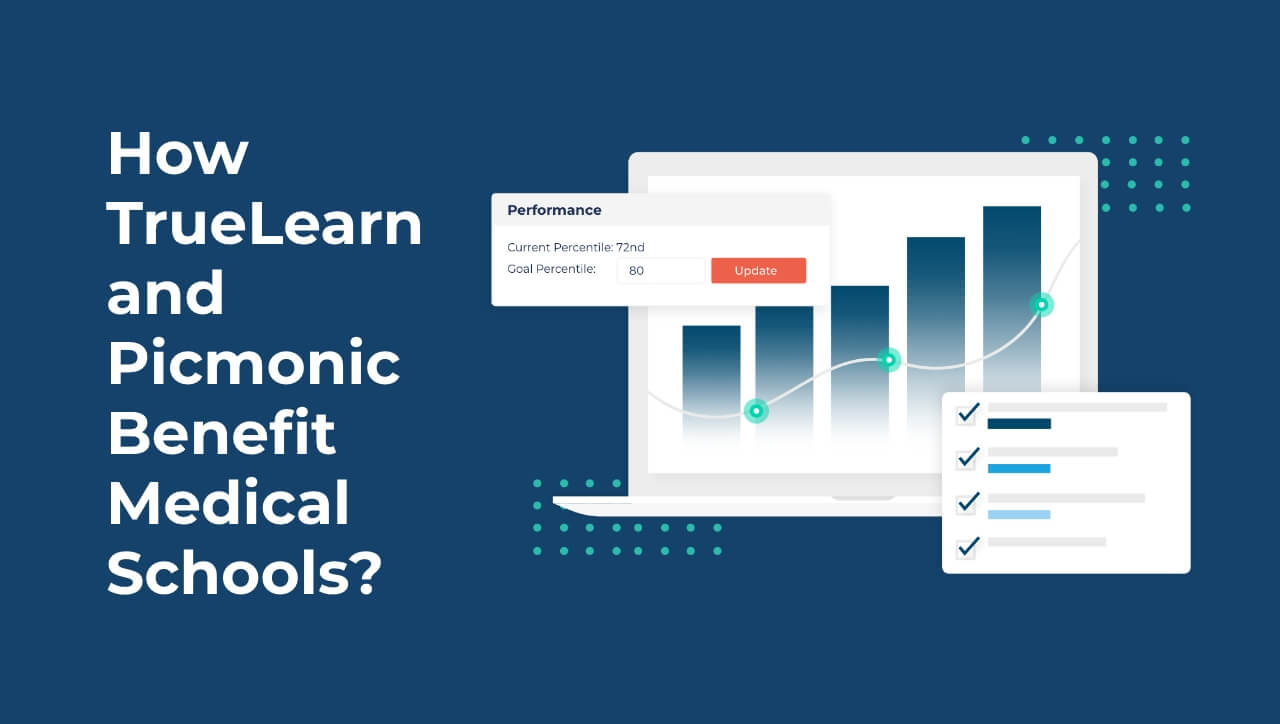Maximizing USMLE® Success in 2024 with the TrueLearn-Picmonic Learning Loop
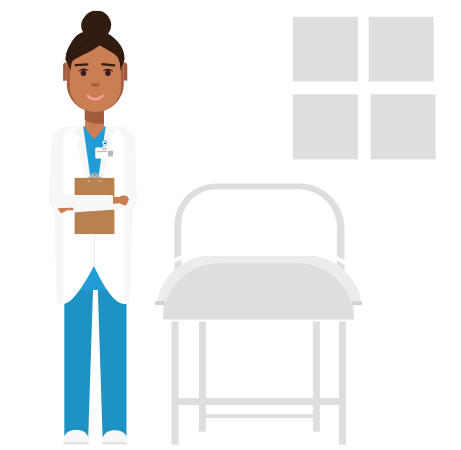
With the overall USMLE® Step 1 pass rates declining following the transition to pass/fail scoring, it is crucial for faculty to get a pulse on USMLE® readiness as early as possible and continue to track student performance throughout medical school to achieve desired outcomes.
Harness the Power of Cognitive Science and Data Analytics to Improve USMLE® Outcomes
Meet the Powerfully Effective TrueLearn-Picmonic Solution for Medical Schools
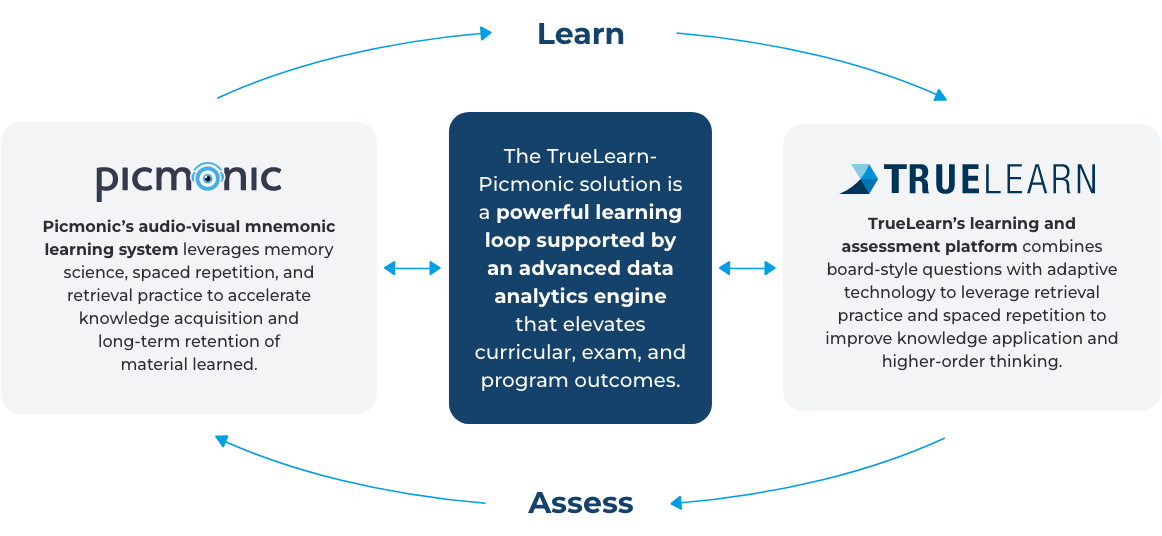
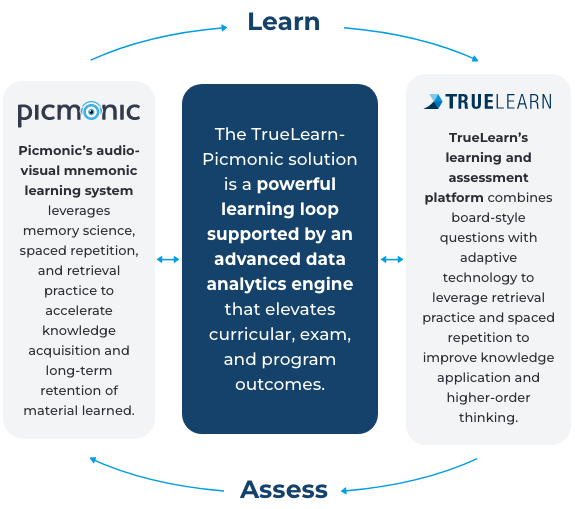
A Science-Backed Approach to USMLE® Preparation, Powered by Real-time Analytics
Get the Insights and Tools You Need to Meet Educational Goals
To arm medical school educators with the tools they need to boost student and program success, TrueLearn and Picmonic
have come together to create a comprehensive learning loop supported by an advanced data analytics engine to elevate
curricular, USMLE®, and residency match outcomes. Here’s how:
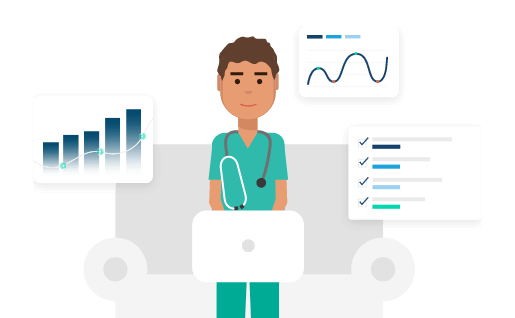
01
Faculty enhance their existing curricula and improve outcomes by integrating customizable, USMLE-style questions and quizzes to assess knowledge acquisition and application. They also leverage the key and objective data to tailor lesson plans and remediation to optimize academic outcomes.
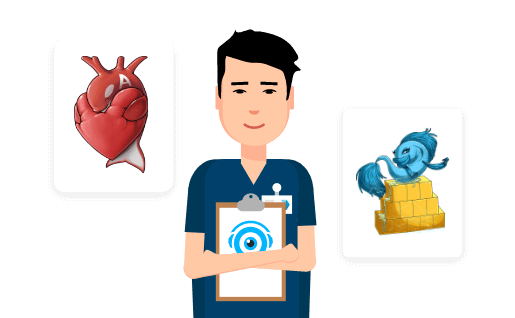
02
Students learn, retain and recall concepts 331% longer and improve exam scores by 55% with Picmonic’s mnemonic study aids3 –embedded directly in answer explanations–and engage in higher-order thinking. They also leverage detailed rationales, insights into testing habits and behaviors, and real-time performance data to self-regulate learning.

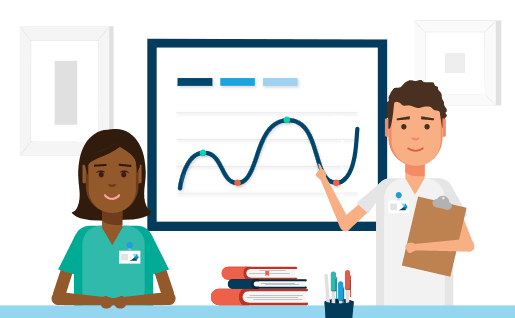
03
Deans, Department Heads, Clerkship Directors, and faculty gain real-time performance data, longitudinal insights, and comparative analytics to identify at-risk students early, uncover performance trends, and inform curricular decisions to meet educational goals.






